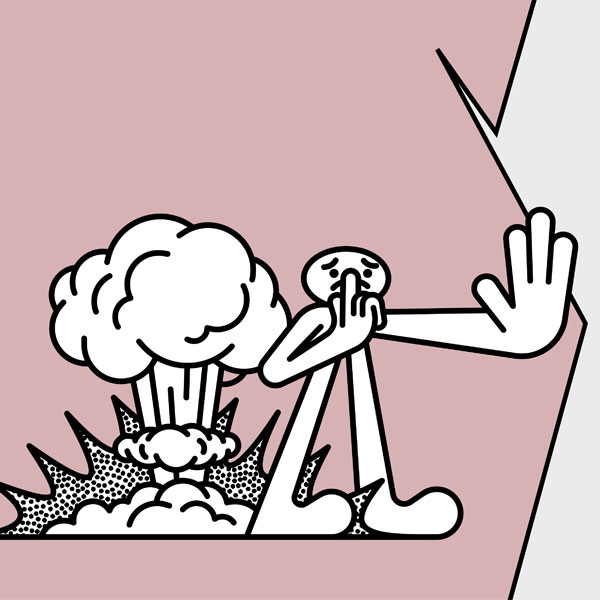Feature: Toxic world
Loving molecules, just as they are
Chemicals are often dangerous, but they are useful too. This is why they should be strictly regulated, but not completely banned.

Carcinogenic substances in sausages, 5G radiation from the latest antennae – such threats are supposedly lurking everywhere. It’s as if the whole world were riddled with danger. Some fears might be justified, but others definitely aren’t. | Image: 1kilo / 2. stock süd
The ominously named dichlorodiphenyltrichloroethane and alpha-phthalimido glutarimide have taken a serious fall. And this is despite having initially arrived on the scene in hopes of giving us better lives.
The first, better known as DDT, is an insecticide. During the Second World War, it helped mankind to curb the spread of malaria and typhus. This molecule is both cheap and effective, and it doesn’t include arsenate, which was often being used at the time, despite being known to be poisonous. DDT won the Swiss chemist Paul Müller the Nobel Prize for Medicine in 1948, when he was an employee at the pharma company Geigy. DDT also soon became popular in the agricultural sector. But in the book ‘Silent Spring’ in 1962, the US biologist and bestselling author Rachel Carson pointed out the decline in bird populations, especially in regions where insecticides were widely used. DDT was eventually forbidden in both the USA and Switzerland in 1972.
The second molecule is better known as thalidomide, and it’s an effective sleeping pill and sedative. It does not contain any bromide, which had previously been used and was responsible for triggering many mental illnesses. Thalidomide was used to treat morning sickness from 1957 onwards. But then there was a sudden spike in the number of serious deformities in newborns. The German doctor Widukind Lenz recognised the link to thalidomide, and the substance was taken off the market in Germany in 1961.
The story of these two molecules is paradigmatic of the dilemma found throughout chemistry. It brings great progress, yet great suffering too. Its substances are regulated by the state, but mistakes still happen, time and again. What is important is that we learn from them. The inherent conflict in question will remain, of course. But there are continued reasons for using these two molecules in certain circumstances. The World Health Organization recommends using DDT to combat malaria in interior spaces, for example, and the active ingredient of thalidomide is today being used successfully against leprosy, cancer and other illnesses.




